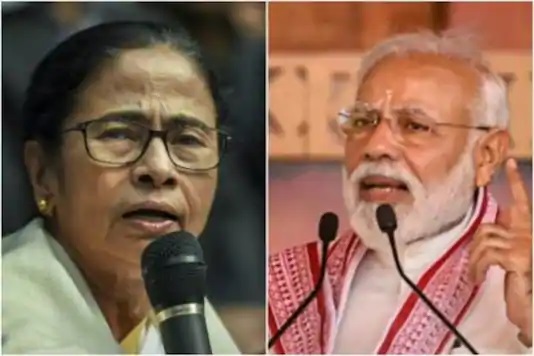What are the issues in the West Bengal Assembly elections? Why? – The development work of the ruling government, allegations of corruption raised by the opposition, rising prices of petroleum products, falling interest rates in banks, agricultural laws, unemployment problems, recruitment related corruption, deteriorating law and order, allegations of dadagiri cum tolabazi against TMC leaders – these are the issues!! These have been surveyed by agencies, are being discussed on television screen in the evening! Yes – these are issues of course but what has become the main thing now is polarization – polarization based on purely religion. No matter how much the leaders of the two main parties – TMC and BJP – talk about development at the beginning of the speech, in the end they can no longer hold this message. This is the first time in West Bengal that the majority [on the basis of religion] of the people have formed such an unseen alliance – which will benefit the BJP. Needless to say, the lion’s share of the minority vote will go to TMC. The heat of this polarization was felt in the result of the last Lok Sabha elections. That is why in the last one and a half year, the Chief Minister has not gone to Iftar wearing hijab, and rather she has recited mantras of various Hindu gods and goddesses in all the meetings. But it will be understood only on May 2 whether the widespread religious polarization has been prevented or not.
Political parties and pundits in the state probably couldn’t imagine that the BJP's result in the Lok Sabha elections would be so tall in West Bengal. After the declaration of result they could feel how the entire society had been polarized. Let's talk a little more clearly about polarization. The BJP - opponents think that this religious polarization has taken place as a result of the BJP’s campaign and the Sangh Parivar's planned activities to bring Hindus together. The question is how the Muslim votes could be accumulated earlier in one pole? Many will quickly say that it was a reaction. But what does experience say? Who started the process? Minority vote bank - this theory has been discussed in this country without any cover since independence. In minority-populated areas, it became customary to field Muslim candidates. Issuing fatwas to vote for a particular party is not a very uncommon experience. There are also examples of changing the law under pressure from the religious community. Then another kind of polarization started in name of Dalit identity. And the self-acclaimed sociologists or intellectuals of this country did not hesitate to give institutional recognition to the politics of caste. Today, there are cries of polarization as soon as the Hindu vote goes to the BJP. The incidents that took place in Diamond Harbour before the Loksabha polls, starting from Deganga , Dhulagarh and Kaliaganj, were not covered by the mainstream media for the sake of 'harmony', but due to the existence of social media, it has reached the common man in the right or wrong way. In addition, there have been frequent incidents in the villages where the police and the administration have not taken effective measures to deal with those. This has gradually separated one large population from another. Those who understand many things do not understand that there is a limit to patience. Hundreds of millions of people from West Bengal have their roots in the erstwhile East Bengal. They can hear and see how minorities are being oppressed in today’s Bangladesh. The experience of those who live in the border districts is even bitterer. What to do without the home again - this fear also haunts many. Scholars who think that the so-called 'core issues' of food, clothing and shelter are the only concerns of the people may not have noticed that people have begun to think – if they cannot live with self-esteem what will they do with the reduced price of cooking gas or increased rates of bank interest !!!! The way in which the jihad has been carried out under the guise of political struggle has also angered another section of the population. The ruling party has ignored the emotions and insecurity of these people. So if polarization really does happen, the non-BJP parties cannot deny its responsibility. As soon as the polarization goes against them, they are raising their voices. The reaction may not always be immediate, there will be action but there will be no reaction - science does not say that.Attempts have always been made in this country to divide and weaken the Hindu society. Sometimes the Scheduled Castes, sometimes the Adivasis, sometimes the so-called Dalits, sometimes the followers of different religious gurus have been told that they are not part of the larger Hindu society, they are different from each other . Several political parties, including the Congress, had been successful in this ‘social engineering’ for a long time. But the Sri Ram Janmabhoomi movement, which started anew in the late eighties, as well as the RSS along with countless small and large organizations rooted in all spheres of society, has been able to bridge the apparent divisions among Hindus and bring them under one umbrella. At the same time, growing Islamic terrorism around the world, extreme left-wing insurgency, and the plight of Hindus in two neighboring states – Pakistan and Bangladesh – have further strengthened the mental unity of Hindus. The educated, modern educated generation now verifies all the information themselves.So they have also found the hypocrisy behind the secularism and the double standard of the mainstream media. Although late, religious polarization in West Bengal is so clearly seen today. It had to happen; it was a very normal social change. Instead, one should think why it has not happened for so long – why it did not happen immediately after partition!!!
Someswar Boral

